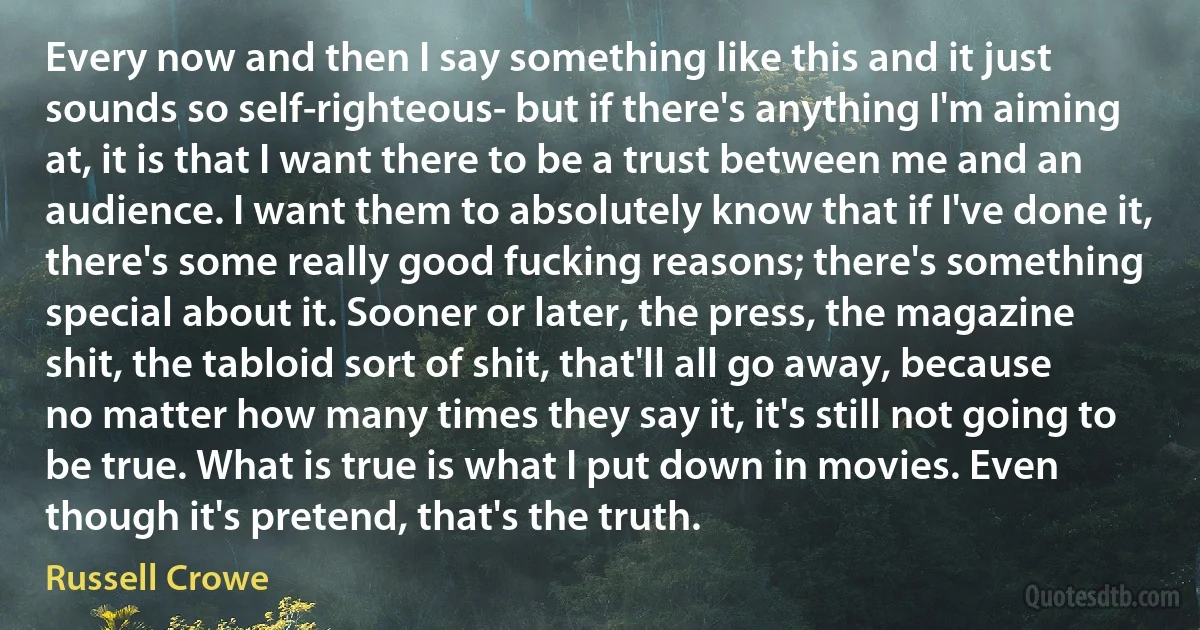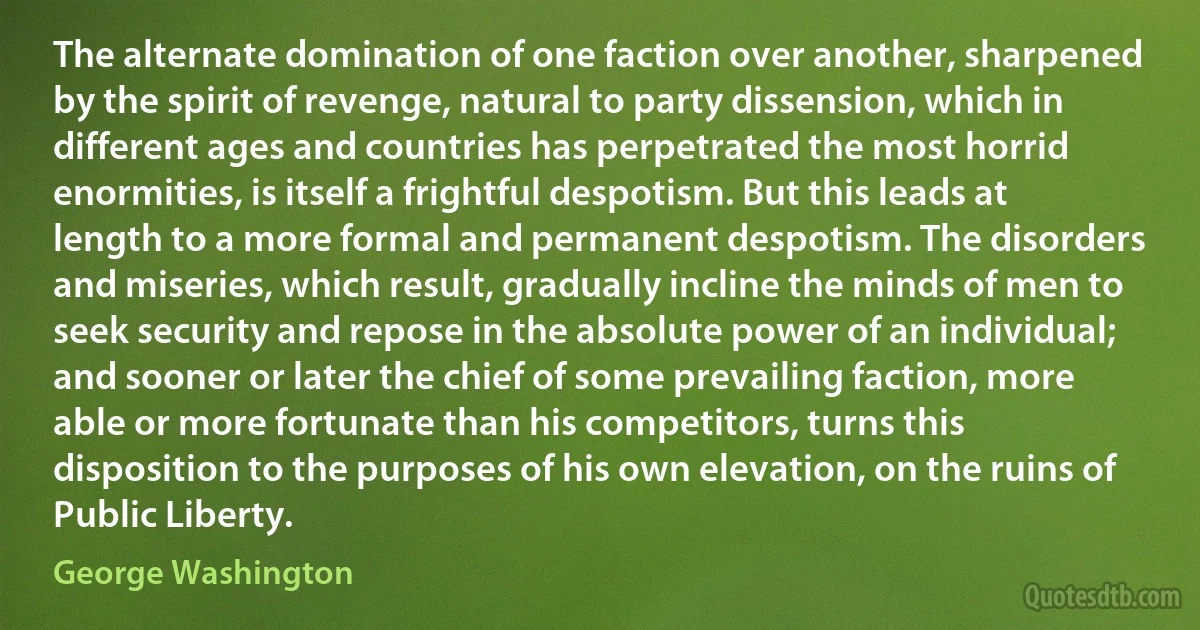Sooner Quotes - page 29
Round about what is, lies a whole mysterious world of might be, - a psychological romance of possibilities and things that do not happen. By going out a few minutes sooner or later, by stopping to speak with a friend at a corner, by meeting this man or that, or by turning down this street instead of the other, we may let slip some great occasion of good, or avoid some impending evil, by which the whole current of our lives would have been changed. There is no possible solution to the dark enigma but the one word, "Providence".

Henry Wadsworth Longfellow
I can't support bike lanes. How many people are riding outside today? We don't live in Florida. We don't have 12 months of the year to ride on their [sic] bikes. And what I compare bike lanes to is swimming with the sharks. Sooner or later you're going to get bitten. And every year we have dozens of people that get hit by cars, or trucks. Well no wonder! Roads are built for buses, cars, and trucks, not for people on bikes. My heart bleeds for them when I hear someone gets killed, but it's their own fault at the end of the day.

Rob Ford
To read a newspaper is to refrain from reading something worth while. The natural laziness of the mind tempts one to eschew authors who demand a continuous effort of intelligence. The first discipline of education must therefore be to refuse resolutely to feed the mind with canned chatter.
People tell me that they must read the papers so as to know what is going on. In the first place, they could hardly find a worse guide. Most of what is printed turns out to be false, sooner or later. Even when there is no deliberate deception, the account must, from the nature of the case, be presented without adequate reflection and must seem to possess an importance which time shows to be absurdly exaggerated; or vice versa. No event can be fairly judged without background and perspective.

Aleister Crowley
It is far more likely that by the time nationalization has become the rule, and private enterprise the exception, Socialism (which is really rather a bad name for the business) will be spoken of, if at all, as a crazy religion held by a fanatical sect in that darkest of dark ages, the nineteenth century. Already, indeed, I am told that Socialism has had its day, and that the sooner we stop talking nonsense about it and set to work, like the practical people we are, to nationalize the coal mines and complete a national electrification scheme, the better. And I, who said forty years ago that we should have had Socialism already but for the Socialists, am quite willing to drop the name if dropping it will help me to get the thing. What I meant by my jibe at the Socialists of the eighteen-eighties was that nothing is ever done, and much is prevented, by people who do not realize that they cannot do everything at once.

George Bernard Shaw
By virtue of their mutual interest does nature unite people against violence and war...the spirit of trade cannot coexist with war, and sooner or later this spirit dominates every people. For among all those powers...that belong to a nation, financial power may be the most reliable in forcing nations to pursue the noble cause of peace...and wherever in the world war threatens to break out, they will try to head it off through mediation, just as if they were permanently leagued for this purpose.

Mike Jones
It seems to me a long way to go just to sit in a non-drinking, non-smoking environment on the offchance your name is called. ... It's as if you are entered into a race you don't particularly want to run in. All the hoops you have to jump through on these occasions: it's not my favourite occupation. Walking around in the spotlight having to be me is not something I'm particularly comfortable with or desire. I'd sooner pretend to be someone else.

Albert Finney
Thus King Dolor's reign passed, year after year, long and prosperous. Whether he was happy - "as happy as a king" - is a question no human being can decide. But I think he was, because he had the power of making everybody about him happy, and did it too; also because he was his godmother's godson, and could shut himself up with her whenever he liked, in that quiet little room in view of the Beautiful Mountains, which nobody else ever saw or cared to see. They were too far off, and the city lay so low. But there they were, all the time. No change ever came to them; and I think, at any day throughout his long reign, the King would sooner have lost his crown than have lost sight of the Beautiful Mountains.

Dinah Craik
Despite our grandiose ideas and our lofty self-conceits, we are still humble animals, subject to all the basic laws of animal behaviour. Long before our populations reach the levels envisaged above we shall have broken so many of the rules that govern our biological nature that we shall have collapsed as a dominant species. We tend to suffer from a strange complacency that this can never happen, that there is something special about this, that we are somehow above biological control. But we are not. Many exciting species have become extinct in the past and we are no exception. Sooner or later we shall go, and make way for something else. If it is to be later rather than sooner, then we must take a long, hard look at ourselves as biological specimens and gain some understanding of our limitations.

Desmond Morris
He knew that sooner or later, in spite of all protecting charms and precautions, Death would creep silently on him or spring suddenly from some unguarded moment. This very night his horoscope might signal Death's instant escapeless approach; and though men lived by lies, treating truth's very self as lie to be exploited, the stars remained the stars.

Fritz Leiber
I think ... someone might do a little research on some of the inherent qualities of sex – its cruelty, its bullyingness, for instance. It seems to me that bending someone else to your will is the very stuff of sex, by force or neglect if you are male, by spitefulness or nagging or scenes if you are female. And what's more, both sides would sooner have it that way than not at all. I wouldn't. And I suspect that means not that I can enjoy sex in my own quiet way but that I can't enjoy it at all. It's like rugby football: either you like kicking & being kicked, or your soul cringes away from the whole affair. There's no way of quietly enjoying rugby football.

Philip Larkin
We shall be told: what can literature possibly do against the ruthless onslaught of open violence? But let us not forget that violence does not live alone and is not capable of living alone: it is necessarily interwoven with falsehood. Between them lies the most intimate, the deepest of natural bonds. Violence finds its only refuge in falsehood, falsehood its only support in violence. Any man who has once acclaimed violence as his METHOD must inexorably choose falsehood as his PRINCIPLE. At its birth violence acts openly and even with pride. But no sooner does it become strong, firmly established, than it senses the rarefaction of the air around it and it cannot continue to exist without descending into a fog of lies, clothing them in sweet talk. It does not always, not necessarily, openly throttle the throat, more often it demands from its subjects only an oath of allegiance to falsehood, only complicity in falsehood.

Aleksandr Solzhenitsyn
To tempt, and to be tempted, are things very nearly allied, and, in spite of the finest maxims of morality impressed upon the mind, whenever feeling has anything to do in the matter, no sooner is it excited than we have already gone vastly farther than we are aware of, and I have yet to learn how it is possible to prevent its being excited.
Flight alone is, perhaps, the only remedy; but there are cases and circumstances in which flight becomes impossible, for how is it possible to fly, shun, or turn one's back in the midst of a court? The very attempt would give rise to remarks. Now, if you do not fly, there is nothing, it seems to me, so difficult as to escape from that which is essentially agreeable. All that can be said in opposition to it will appear but a prudery quite out of harmony with the natural instincts of the human heart; besides, no one holds his heart in his hand, tightening or relaxing his grasp of it at pleasure.

Catherine II of Russia
He did not say a monument to what, but he meant, I am sure, to leave it as a monument to the loyalty of our soldiers, who would bear all the horrors of Libby sooner than desert their flag and cause. We struggled on, the great crowd preceding us, and an equally dense crowd of blacks following on behind all so packed together that some of them frequently sang out in pain.

David Dixon Porter
As was sure, sooner or later, to happen, Adams one day met Charles Sumner on the street, and instantly stopped to greet him. As though eight years of broken ties were the natural course of friendship, Sumner at once, after an exclamation of surprise, dropped back into the relation of hero to the school boy. Adams enjoyed accepting it. He was then thirty years old and Sumner was fifty-seven; he had seen more of the world than Sumner ever dreamed of, and he felt a sort of amused curiosity to be treated once more as a child. At best, the renewal of broken relations is a nervous matter, and in this case it bristled with thorns.

Henry Adams
Good intentions, like mother's milk, are a perishable commodity. As wealth accumulates, men decay, and sooner or later an aristocracy that once might have aspired to an ideal of wisdom and virtue goes rancid in the sun, becomes an oligarchy distinguished by a character that Aristotle likened to that of "the prosperous fool”-its members so besotted by their faith in money that "they therefore imagine there is nothing that it cannot buy.”.

Lewis H. Lapham



